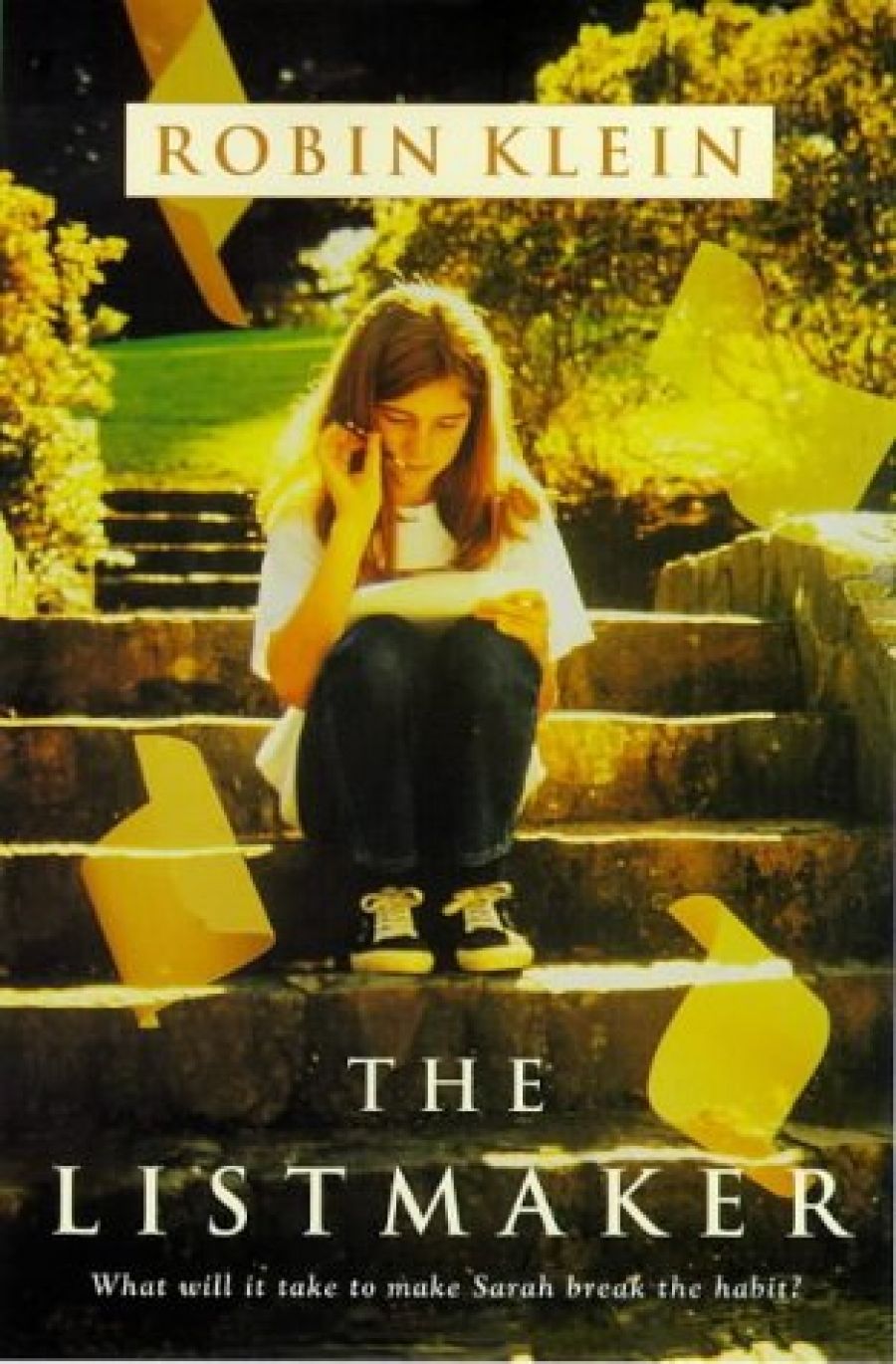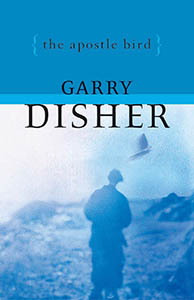
- Free Article: No
- Contents Category: Children's and Young Adult Fiction
- Review Article: Yes
- Article Title: Afire with passion
- Online Only: No
- Custom Highlight Text:
It takes a book like Robin Klein’s The Listmaker to remind adults that a children’s book which succeeds in conveying a child’s point of view may well not immediately engage more mature readers. In this instance, Klein so precisely articulates the self-absorbed voice of twelveyear-old Sarah, the eponymous listmaker, that it takes an effort of will for an adult reader to persist past the first few pages of what seem like overstated emotions and overdetermined plot. Children will have no trouble accepting Sarah’s voice and understanding that it’s like it is because it’s been distorted by her circumstances. Adults too, however, would do well to persevere with The Listmaker, for it turns out to be a heart-felt indictment of how our greedy me-first society can damage children.
- Book 1 Title: The Listmaker
- Book 1 Biblio: Viking $14.95 pb, 219 pp
- Book 1 Readings Link: booktopia.kh4ffx.net/RyDgBg
- Book 2 Title: The Apostle Bird
- Book 2 Biblio: Hodder $12. 95 pb, 122 pp
- Book 2 Cover Small (400 x 600):

- Book 2 Cover (800 x 1200):

- Book 2 Cover Path (no longer required): images/ABR_Digitising_2022/Jan_Feb_2022/disher apostle bird.jpg
- Book 2 Readings Link: booktopia.kh4ffx.net/qnG5by
Ever since her mother died when Sarah was five, her father has put all his time and energy into his high-flying job. Because work frequently takes him overseas, Sarah has had to spend term-times in a posh boarding school and holidays with her slightly dotty (but reliably affectionate) aunts. It’s because she has been deprived of any voice in the decisions which affect her life that Sarah has developed her habit of making lists. It’s a way of creating for herself at least an illusion of control over her life, part of a formidable structure of self-delusion, self-loathing and self-denial which she has constructed in order to closet her emotions.
We meet Sarah at the beginning of what she expects to be the last summer holidays she’ll spend with the aunts. Though the aunts have just moved into a ramshackle old cottage with plenty of unfamiliar surroundings to explore, Sarah withholds her enthusiasm and involvement because her father is soon to marry Piriel, a chic real estate agent, and Sarah has been led to believe that she will permanently join the newlyweds in their plush new city apartment.
Sarah, who narrates the story, seems at first irritatingly priggish and spiteful. That she’s without friends is no surprise. Gradually, however, we begin to understand the extent to which she has been betrayed by her father – and continues to be betrayed both by him and by the obnoxious Piriel. Such is her father’s almost total absence of other than financial involvement in Sarah’s life that we have no direct acquaintance with him until a phone call near the end of the book. It’s that call that finally jolts Sarah out of her blind trust and devotion.
Though adults may well think The Listmaker overstated, remember that we’re seeing events through disturbed young eyes. If a twelve-year-old like Sarah had the skills to write a 200-page novel, it might well turn out like this. That’s the measure – by no means an insignificant one – of Klein’s success. Seeing life so clearly through the eyes of a twelve-year-old is not necessarily a comfortable experience for an adult but it’s certainly an enlightening one.
Would that Garry Disher’s The Apostle Bird were as well judged. Similar in many ways, not least in its Depression setting, to Disher’s The Bamboo Flute, it falls far short of that fine novel. Where The Bamboo Flute’s spare simplicity and sharp emotional focus opened it to readers of all ages, The Apostle Bird has a portentousness and an imprecision of voice which suggest that, but for the age of the central character, it might better have been pitched to adults. Neil, the fifteen-year-old narrator, who tells us (with improbably precise self-awareness, given his age and circumstances) that he’s ‘composed of daydreams and bewildermen’, is the only son of parents forced to fossick for gold in ‘the far mallee scrub’. In return for unpaid help, they’re allowed to occupy a hut on property owned by a wealthy leaseholder whose land is dotted with gold claims. Trouble arises when Ivan, an American, arrives with his attractive teenage daughter, Kitty. Depending which gossip people favour, Ivan may be a murderer, a bank robber or a strike organiser. In any event, he’s a ready scapegoat when a local goes missing with a substantial quantity of gold. Ivan’s (and, of course, Kitty’s) predicament finally forces Neil to make some moral choices he has hitherto preferred to avoid.
All this is told in fine prose, so fine in fact – or so cerebral – that it somehow mutes the wisdom, understanding and compassion by which we are presumably meant to be stirred. As I’ve suggested, The Apostle Bird would have been better conceived as an adult novel. It’s accessible to teenagers but, I would suggest, unlikely to be read by them with enthusiasm, however energetically adults may recommend it. On the other hand, even though it’s dismissible as ‘only’ a children’s book, The Listmaker’s perfect pitch makes it one that has a great deal to teach openminded readers about the art of fiction. It’s also so afire with righteous (and rightful) passion that any adult with a regard for children’s welfare would do well to read it for that reason alone.


Comments powered by CComment